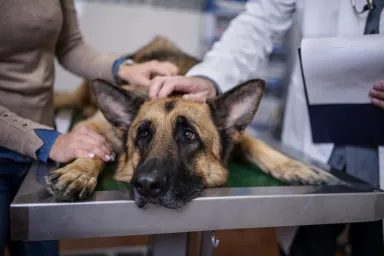
Uremia In Dogs: Symptoms, Causes, & Treatments
Uremia in dogs is a serious medical emergency that happens when waste products and toxins that are normally filtered by the kidneys build up in the bloodstream where they can spread throughout the body. This can occur when the kidneys suffer damage or when obstructions appear in the urinary tract.







